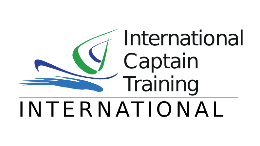The Oiler course is designed to provide students with the fundamental knowledge and practical skills required to work as an oiler in the engine department of various types of vessels. This course is ideal for individuals seeking to start a career in the maritime industry or those looking to enhance their engineering skills for work on commercial ships, offshore vessels, and other marine platforms.
Oiler Course
Course Objectives
- Understand the roles and responsibilities of an oiler.
- Develop essential engineering and mechanical skills.
- Learn about vessel machinery and maintenance procedures.
- Gain practical experience in engine room operations and safety.
Prerequisites
- Minimum age: 18 years.
- Basic understanding of mechanical systems is beneficial but not required.
Course Duration
- Theory and Practical: 10 days (approximately 80 hours).
Course Content
- Introduction to Maritime Engineering
- Overview of the maritime industry and engine department roles.
- Responsibilities and duties of an oiler.
- Career pathways and opportunities in marine engineering.
- Basic Engineering Knowledge
- Introduction to marine engines and propulsion systems.
- Understanding fuel, lubrication, cooling, and exhaust systems.
- Basic electrical systems and components on a vessel.
- Engine Room Safety
- Safety protocols and personal protective equipment (PPE).
- Fire prevention and firefighting in the engine room.
- Emergency procedures and drills.
- Understanding and handling hazardous materials.
- Engine Room Operations
- Routine engine room checks and maintenance tasks.
- Monitoring and recording engine parameters.
- Assisting with start-up and shutdown procedures.
- Fuel transfer and oiling procedures.
- Machinery Maintenance and Repair
- Routine maintenance of engines and auxiliary machinery.
- Lubrication and oiling of moving parts.
- Basic troubleshooting and repair techniques.
- Use of hand tools and measuring instruments.
- Practical On-Board Training
- Hands-on practice with engine room equipment and machinery.
- Performing routine checks and maintenance under supervision.
- Engaging in emergency drills and safety procedures.
- Real-world troubleshooting and repair scenarios.
Assessment
- Theory Exam: Multiple-choice questions covering basic engineering principles, safety protocols, and engine room operations.
- Practical Exam: Hands-on assessment of engine room operations, maintenance tasks, and safety procedures.
Certification
Upon successful completion of the course and exams, students will receive the ICT International Captain Training Academy Oiler certificate, recognized internationally.
Career Opportunities
Graduates of this course can pursue various maritime roles, including:
- Oiler in the engine department of commercial ships.
- Engineering crew member on offshore platforms.
- Maintenance technician on private yachts and marine vessels.
- Opportunities to advance to higher engineering certifications and positions.
